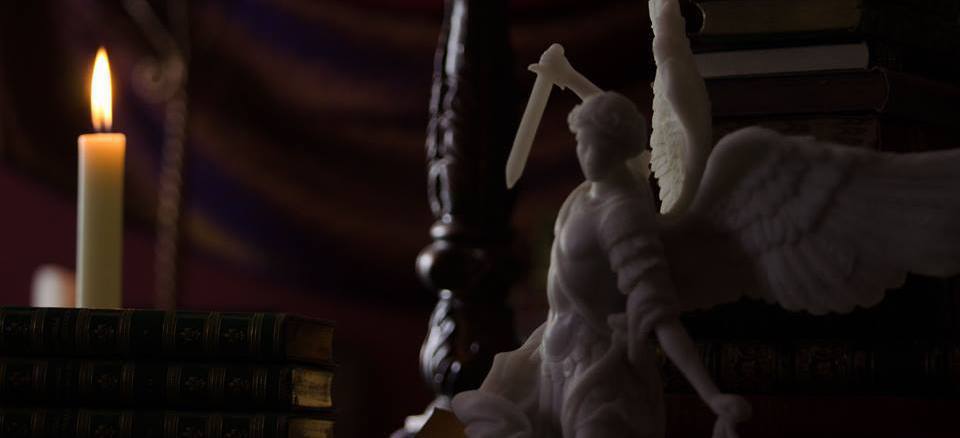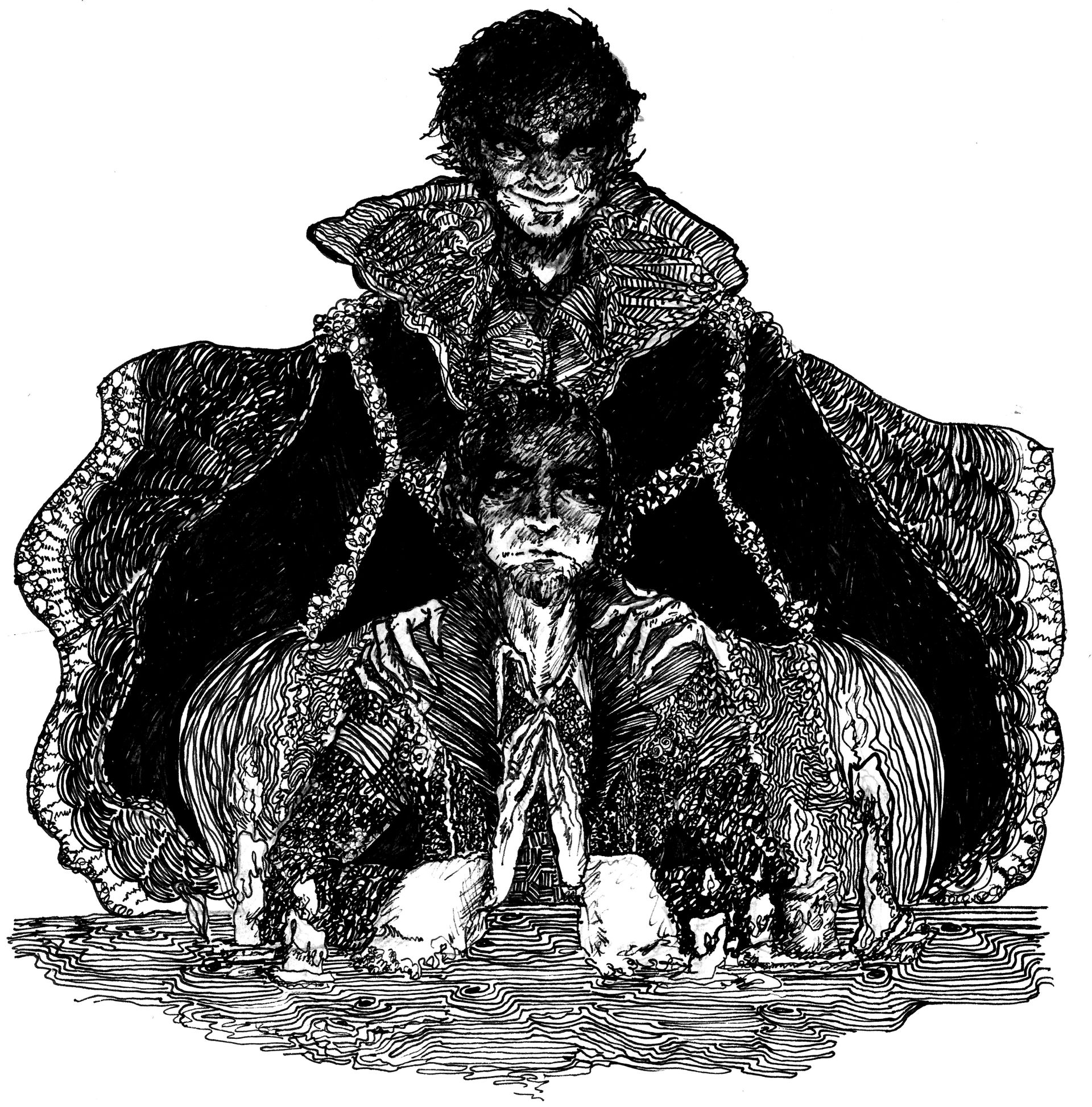The Story

Faust is torn by his search for fulfillment and the happiness he finds desperately lacking in his volumes of text. A scholar wealthy in knowledge but lacking in spirit, Faust believes he has come to the pinnacle of life’s offerings but still can’t grasp the meaning or reasoning behind it all. This is the state in which Mephistopheles, a high ranking demon posing as a professor, finds our protagonist. Feeling lost as to which path he should follow next on his journey to enlightenment, Faust is offered a seemingly gracious gift from Mephisto: a lifetime of servitude from the demon’s well of tricks and conjurings, in exchange for Faust’s soul. Faust readily accepts and seems to have lucked out on the unearthly deal...for awhile. When he meets and woos Gretchen, an innocent and trusting young woman, Mephisto takes this opportunity to make her one more distraction in Faust’s life and to coerce them both down a road of destruction. This ultimately leads to their downfall, as their relationship built on fleeting pleasures gets it’s just rewards.
However, this film will differ in significant ways from its previous adaptations.“Reason and Spirit: A Mutilation of Faust” follows the fundamental ideals and characters from the German legend popularized by Goethe in the 19th century, but instead places Goethe as an enigmatic assistant at Faust’s place of study. His keen perception and guidance follows the character’s through their journey, hinting at a universal morality. When the finale of the film leaves Faust condemned and Mephisto triumphant, Goethe is there to suggest that the demon might have played into some higher power...one that turns everything to His righteous cause.
The traditional role of Valentine, Gretchen’s brother and catalyst for Faust’s downfall, has been removed and instead replaced with Wagner, Faust’s closest friend and scholarly assistant. He sees Faust’s genius and potential for greatness but recognizes that his twisted logic and false truths will only lead to condemnation. Wagner valiantly attempts to dissuade Faust from his ways, but not without notice from Mephisto. The love of a dear friend becomes enraging to Faust and the ironic end of Wagner comes as he warns of Mephisto’s ways, causing Faust to fly into a rage as the demon orchestrates it all.
Why Faust?
The themes and thoughts provoked by this story are so universally appealing that the story has crossed languages and centuries to stimulate the debate between the spiritual and fleshly pursuits conflicting in the brightest minds. We feel that the appeal of this story is the sobering realization that much of what we pursue in life only serves to hinder our fulfillment.

By pursuing full understanding and control of "the first cause" Faust handicaps himself. He limits himself by denying what he is and pursuing what is not his to grasp. His misappropriation ruins him. By observing him we come to understand the hidden, devastating lies we tell ourselves everyday.
